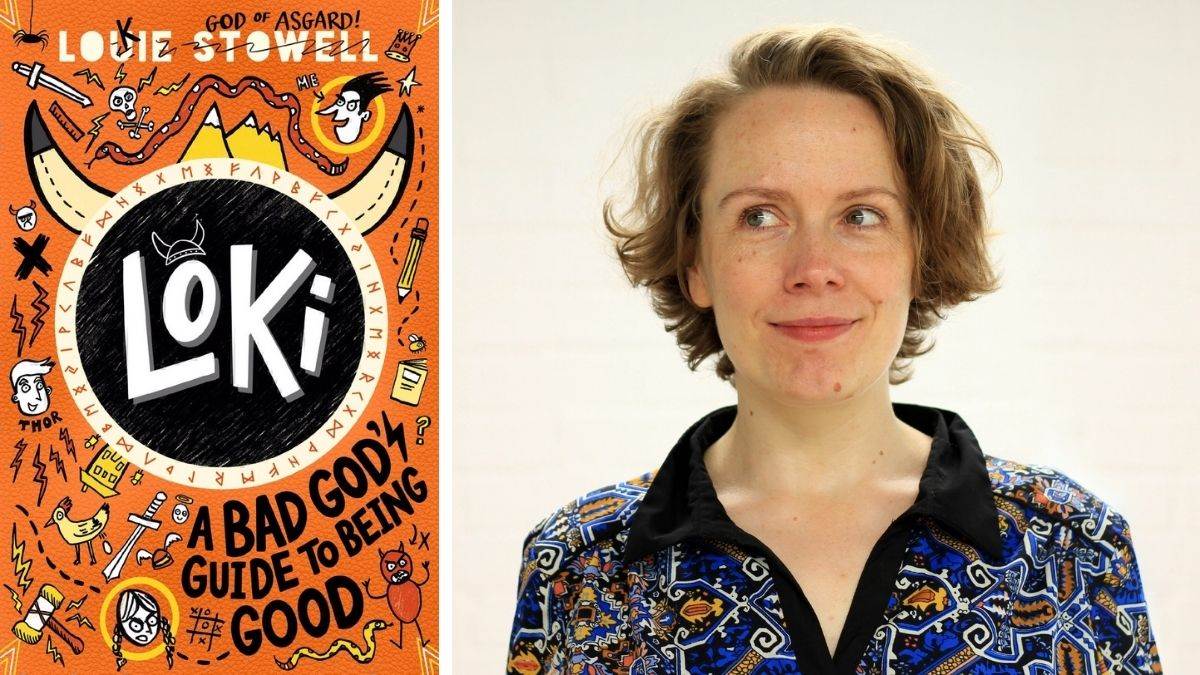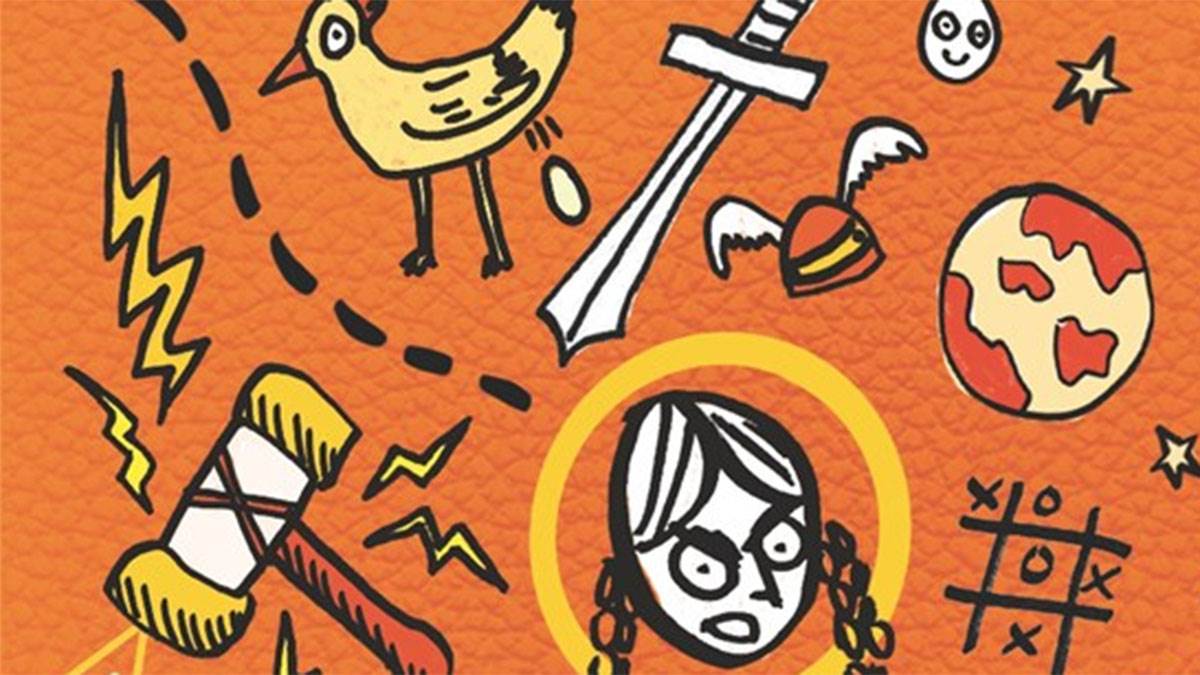Loki author Louie Stowell talks diaries and doodles
Published on: 04 September 2023 Author: Louie Stowell
Loki: A Bad God's Guide to Being Good author Louie Stowell shares why she decided to write the book as a diary... and why she included lots of doodles too!

I have kept a diary ever since I started Year 7. No one has ever read my diaries (unless my parents are more cunning and poker-faced than I give them credit for) and that means I can be brutally honest when I write each entry. It also means I need to put "burn diaries" in my will when I get around to making one of those one day. I hope they don't contain plastic in the binding. Maybe I could have them buried with me. If I live to 100 like I'm planning to, that's a LOT of A4 notebooks to fit into one coffin, mind you.
Looking back at my diaries is very sobering. If I ever get any fancy, romantic ideas about my past, I have easy access to the 'warts and all' version. Turns out, being 15 really, really sucked. (If you're reading this and you're in Year 7 and 8... buckle up, the next few years are rough, but then it gets good again around 17.)
Why stories told through diaries are so brilliant
I loved reading diary-form stories growing up, especially funny ones like The Diary of Adrian Mole aged 13 ¾. Writing in first person about a character means you only get their version of events, but often the reader can see things they don't.
You get to see that the character doesn't understand themself very well, and that offers a lot of comedy potential, but it can also be quite emotional when you're yelling at the character, "You love them!" or, "Don't trust them!" but they really can't see it for themselves.
I knew I wanted to write Loki's story as a diary, and have years and years of my own diaries as inspiration, but I had one problem: Loki is a trickster and a liar. So how would the reader believe a single word he said?
That's where Odin came in. Odin is the boss of all the Norse gods and in my story he's made a magical AI version of himself and put it in Loki's diary. So, when Loki writes lies in it, the diary corrects him.
The Odin-diary-voice came about as a trust building exercise. You know, as a reader, when Loki's lying. But then it took on a life of its own. When you write "Dear Diary", you don't expect them to talk back. Diary Odin became a separate character from Odin the god. He holds Loki to account, and tries to get him to question his really dodgy motives, but I also think he starts to feel a bit fond of him, and wants to help him. If a magical AI can really be said to want anything.
Adding doodles in stories

Another thing I used to do in my diary was doodle. I tried to find some to share with you, but all the doodles are integrated into the text. And, as I said, no one is EVER going to read that.
I draw as naturally (or perhaps more naturally) as I write when I'm explaining myself to myself in my diary. So while Loki isn't me, we have that in common. I love comics, and Loki is partly told in comics, but it's also a story that uses words and images together to move the plot forward in other ways, whether it's through diagrams or through doodles that undermine what Loki's saying in the words.
Sometimes I think even people who lack self-knowledge in their conscious mind can bring it out in their not-really-thinking doodles. Drawing, for me at least, seems to tap into the back bits of my brain that aren't about logic.
Maybe you're the same? Maybe you're someone who doodles in your school books, or on pieces of paper, or in a journal or even in your reading books? (I used to do that at university...Paradise Lost is MUCH better with illustrations I think.)
If you like telling stories but words aren't enough, don't limit yourself to words. But maybe don't doodle on books that belong to the school, or your teachers will come for me.
The trouble with writing stories about a rebellious trickster who does exactly what you're not supposed to do, is people can accuse me of setting a bad example. But stories aren't examples. They're alternative realities you can visit for a while.
So when you're reading Loki's diary, this isn't me telling you how to live. It's me exploring what life would be like as a trickster god forced to live the life of a child in school in the modern age.
Topics: Bookbuzz
